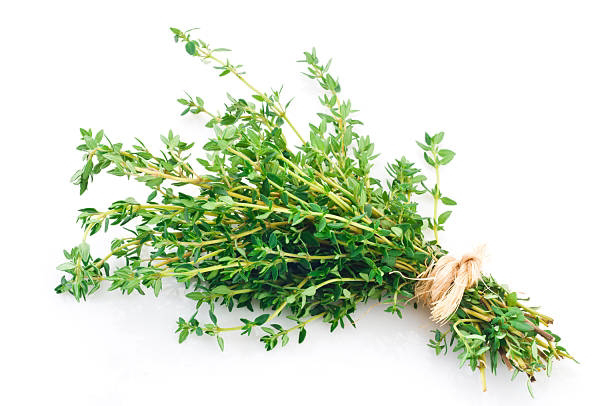Thyme is timelessly fascinating! This little herb packs a punch of history, flavor, and surprising uses. From ancient Egyptians to your modern kitchen, thyme has been a companion to humanity for centuries.
So let's Dive into those fascinating facts .
1. Thymus Thymus: Thyme's genus name, Thymus, comes from the Greek word "thymos," meaning courage or spirit, referencing its invigorating aroma.
2. A Bee Buffet: Thyme flowers are a haven for bees! The tiny, fragrant blossoms are rich in nectar, making thyme a valuable pollinator plant.
3. Ancient All-Star: Egyptians used thyme for embalming, while Greeks and Romans valued it for medicinal purposes and even as a symbol of courage.
4. Beyond the Kitchen: Thyme wasn't just for food! In the Middle Ages, it was burned as incense and believed to ward off evil spirits.
5. Thymol Power: The essential oil in thyme, thymol, is a natural antiseptic and has been used for centuries to clean wounds and fight infections.
6. Cough Conqueror: Thyme tea is a traditional remedy for coughs and colds due to its decongestant and soothing properties.
7. More Than One Thyme: There are over 350 varieties of thyme, with flavors ranging from lemony to peppery! Common types include lemon thyme, English thyme, and French thyme.
8. Tiny But Mighty: Despite its small stature, thyme is a woody perennial herb, meaning it lives for several years with a woody stem base.
9. Sun Worshipper: Most thyme varieties thrive in full sun and well-drained soil, mimicking their native Mediterranean climate.
10. Low Maintenance Marvel: Thyme is a low-maintenance herb, requiring minimal watering and attention, making it perfect for busy gardeners.
11. Culinary Chameleon: Thyme complements a wide range of dishes, from meat and poultry to vegetables and soups.
12. Honey with a Kick: Thyme honey, produced by bees feasting on thyme flowers, has a unique flavor with a subtle hint of herb.
13. Roman Bath Time: Romans used thyme in their baths for its relaxing and cleansing properties.
14. Symbolic Significance: In Victorian times, thyme was a symbol of fidelity and was often included in wedding bouquets.
15. Pest Repellent Power: The strong scent of thyme may help deter some pests in the garden, like aphids and beetles.
16. Flame Resistant: Interestingly, some thyme varieties have fire-resistant properties and are sometimes planted on rooftops in Mediterranean regions.





